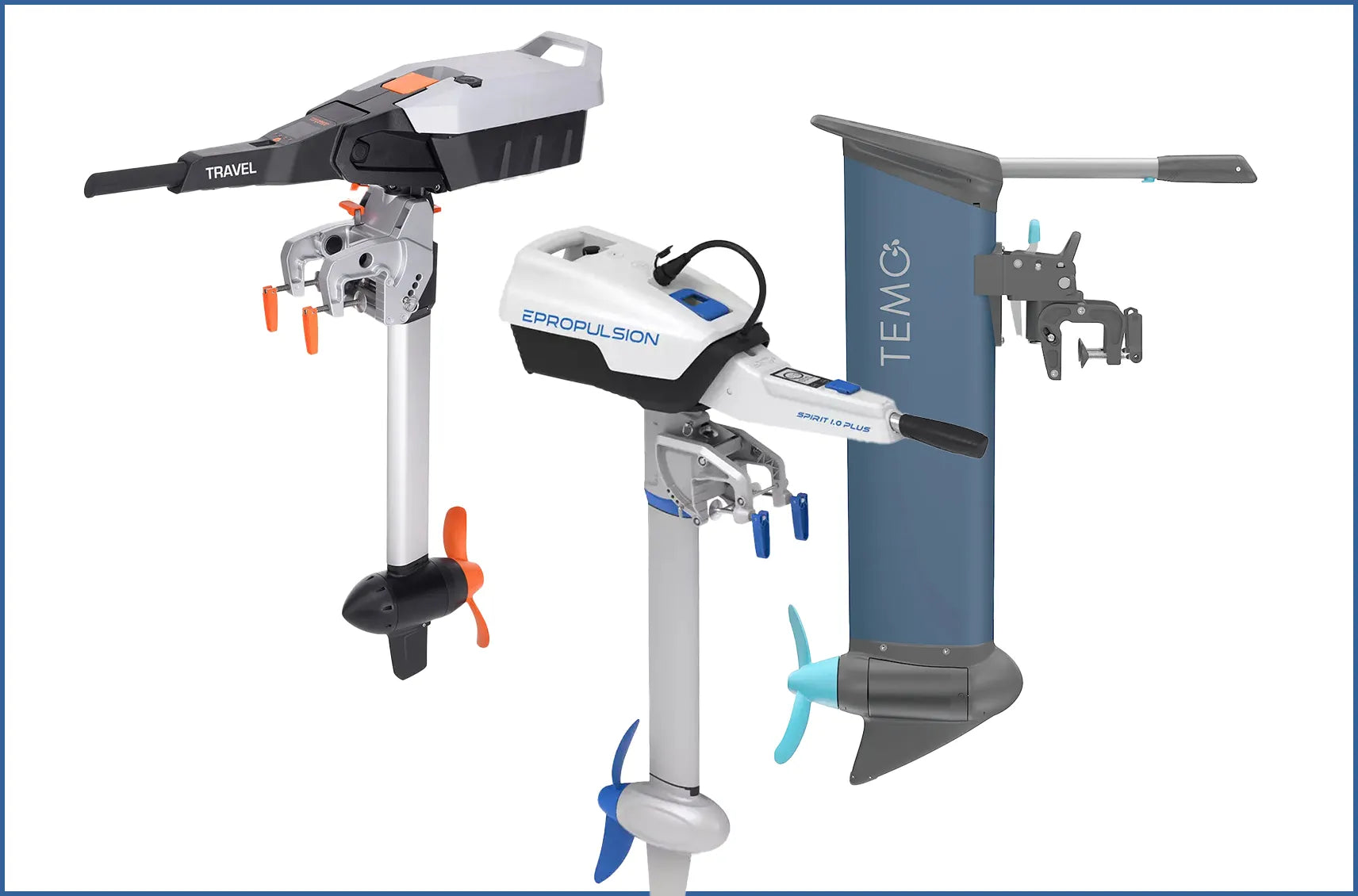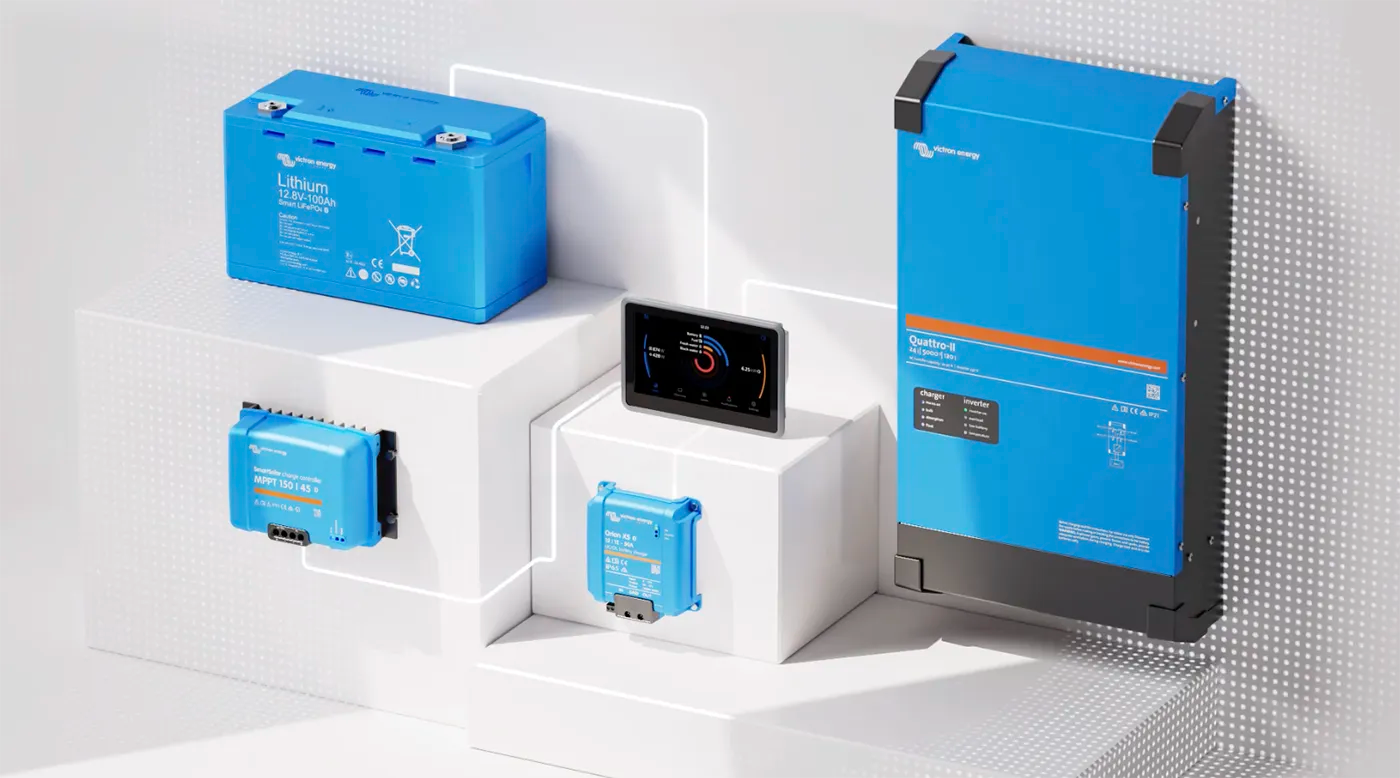What's the Best Battery for Solar Power?
Your battery choice impacts how much solar energy you can store and how long your system can operate during periods of low sunlight or power outages. Several battery types on the market, so it’s important to weigh the pros and cons of each to determine which one is best for your solar setup.
Let’s explore the different battery options and why lithium-ion stands out from the rest.
Lead-Acid Batteries
Lead-acid batteries are the oldest and most established type of rechargeable battery. They are often used in off-grid solar installations and backup power systems.
Advantages
Low initial cost: Lead-acid batteries are the most affordable upfront.
Proven technology: They have been in use for decades, so the technology is reliable and well-understood.
Availability: Widely available in different formats, including Flooded Lead-Acid (FLA), AGM, and Gel batteries.
Disadvantages
- Limited lifespan: Lead-acid batteries typically last between 3 to 5 years, which means you will need to replace them more frequently than other options.
- Low depth of discharge (DOD): With a DOD of about 50%, you can only use half of the battery’s capacity regularly without reducing its lifespan.
- Maintenance: Flooded lead-acid batteries require regular maintenance, such as topping up water levels and ensuring proper ventilation.
Lead-acid batteries are best suited for users looking for a low-cost solution and are willing to perform regular maintenance and replacements.
Lithium-Ion Batteries
Lithium-ion batteries are the most advanced and increasingly popular option for solar energy storage. Their superior performance has made them the go-to choice for solar systems in homes, RVs, boats, and off-grid locations.
Advantages
- Long lifespan: Lithium-ion batteries typically last between 10 to 15 years, offering a much longer service life compared to lead-acid and saltwater batteries.
- High depth of discharge: Lithium-ion batteries can be discharged up to 90-95% of their total capacity, allowing you to use almost all the stored energy without damaging the battery.
- High efficiency: With an efficiency rate of over 95%, lithium-ion batteries store and discharge energy more effectively, wasting less energy in the process.
- Lightweight and compact: Lithium-ion batteries are much lighter and more compact than lead-acid or saltwater batteries, making them ideal for mobile applications and installations where space is limited.
- Battery Management System (BMS): Lithium-ion batteries come with an integrated BMS, which monitors the battery’s voltage, temperature, and state of charge. This ensures safety and maximizes battery lifespan by preventing overcharging, overheating, and deep discharges—especially crucial for solar applications that demand reliable energy storage in fluctuating conditions.
- Maintenance-free: Lithium-ion batteries require no maintenance, allowing you to set up your solar system and forget about battery upkeep.
Disadvantages
- Higher upfront cost: Lithium-ion batteries are more expensive initially than lead-acid or saltwater options, although their longer lifespan and higher efficiency make them more cost-effective in the long term.
- Sensitive to temperature: While lithium-ion batteries are durable, they can be sensitive to extreme temperatures, although most come with built-in Battery Management Systems (BMS) to mitigate this.
Nickel-based Batteries (e.g., Nickel-Cadmium)
Nickel-based batteries have been used for decades in specialized applications due to their durability and resilience in extreme conditions, though they are less common in modern residential solar markets compared to lithium-ion options.
Advantages
- Durability: Able to withstand extreme temperatures and harsh environments, making them suitable for off-grid systems.
- Long lifespan: Can handle thousands of charge-discharge cycles with minimal degradation.
- Deep discharge tolerance: Can be fully discharged without significant damage, offering flexibility in energy usage.
Disadvantages
- Lower energy density: Stores less energy per unit of weight compared to lithium-ion and other batteries.
- Toxicity concerns: Cadmium is toxic, posing environmental risks and complicating disposal.
- Higher cost: Generally more expensive than lead-acid batteries, especially for larger solar setups.
They are best suited for off-grid solar systems in industrial or remote locations where environmental toughness and longevity are more important than compact size or energy density.
Flow Batteries
Flow batteries are an emerging energy storage solution that stores energy in liquid electrolyte solutions, making them ideal for large-scale solar installations requiring massive energy capacity.
Advantages
- Scalability: Energy capacity can be easily increased by adding more electrolyte solution, making them ideal for large-scale storage.
- Long lifespan: Minimal degradation over time, with a cycle life that can exceed 10,000 cycles.
- 100% depth of discharge: Can be fully discharged without damaging the battery, providing efficient energy use.
Disadvantages
- High upfront cost: Flow batteries are more expensive to purchase and install compared to most residential battery options.
- Bulky size: The system requires more space due to the need for external tanks to store the electrolyte solution, making them impractical for residential use.
- Complexity: More complex system setup and maintenance compared to lithium-ion or lead-acid batteries.
These batteries are best suited for commercial or utility-scale solar farms where space is abundant, and long-term energy storage is crucial for managing grid-level energy demand.
Honorable Mention - Saltwater Batteries
Saltwater batteries, while promising as an eco-friendly alternative to traditional energy storage, are not currently available to the public. Despite their potential, they remain largely untested in commercial and residential solar applications. Research and development are ongoing, but they have yet to be produced on a scale that makes them a viable option for mainstream use.
Advantages
- Environmentally friendly: Free of heavy metals and toxic chemicals, saltwater batteries are fully recyclable and do not pose environmental hazards.
- Safe operation: Saltwater batteries are non-flammable, reducing the risk of fire or dangerous chemical leaks.
- Simple maintenance: They are low-maintenance compared to lead-acid batteries.
Disadvantages
- Lower energy density: Saltwater batteries can’t store as much energy per unit of weight or volume compared to other battery types, meaning they take up more space.
- Shorter lifespan: Their technology is still evolving, so they don’t last as long as lithium-ion batteries.
- Limited availability: Saltwater batteries are not as widely available or standardized as lead-acid or lithium-ion options.
Until further advancements are made, more established technologies like lithium-ion batteries remain the dominant choice for solar energy storage.
Why Lithium-Ion is the Ideal Choice
Lithium-ion batteries have become the gold standard in solar energy storage for several reasons. Their long lifespan and high depth of discharge mean you can store more energy and use more of it before needing to recharge or replace the battery. The integrated BMS adds another layer of protection, making lithium-ion batteries not only efficient but also safe and reliable. While lead-acid batteries are cheaper initially, their lower DOD and shorter lifespan make them less efficient and more costly over time. Saltwater batteries, though eco-friendly, lag behind in terms of energy density and availability.
For users seeking a low-maintenance, long-lasting, and efficient battery for their solar power system, lithium-ion offers the best balance of performance and long-term value. The initial investment is quickly offset by their extended service life, higher energy efficiency, and ability to store more usable energy. Whether you’re powering your home, RV, boat, or off-grid cabin, lithium-ion batteries deliver the best results for solar applications, providing reliable energy storage that will last for years.
Ready to upgrade your solar setup with the latest in energy storage technology? Visit Blue Marine to explore our selection of lithium-ion batteries and take the next step toward a more efficient, long-lasting solar power solution.



